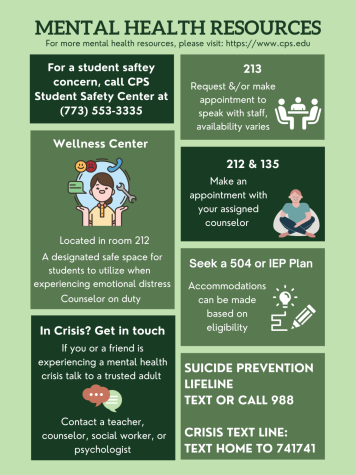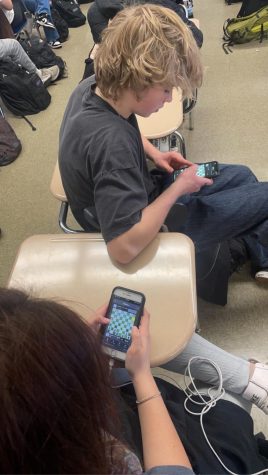Equal opportunities: AP classes and inclusion
February 15, 2018
At Lane, the options for class selections are extensive — with 42 AP classes ranging from challenging STEM topics to in-depth humanities courses, the school curriculum is designed to offer the option of an advanced, college-level class for all students.
The College Board supports opening AP classes to students with IEPs, or Individualized Education Plans, and recognizes accommodations for students taking such exams.
According to the College Board website, “The College Board is committed to making sure that students with disabilities can take tests, including the SAT, SAT Subject Tests, PSAT/NMSQT, PSAT 10, and Advanced Placement Exams, with the accommodations they need. All reasonable requests are considered.”
Mr. Tarbhai, an AP US History teacher, said that he tries to provide all students with equal opportunities in his AP classes, whether they have IEPs or not.
“I try to extend those accommodations to just about everybody in my classes, which is why you realize that there’s typically no time limit in my classes,” Tarbhai said. “If anybody needs extended time on a test, they can have it whether you have an IEP or not.”
Tarbhai said he believes that a co-taught AP class would be beneficial for all students, not just those with IEPs.
A co-taught class is one in which a special education teacher is assigned to a specific classroom and provides additional support to students that require this in their IEP.
“Having two people would definitely make [classroom activities] significantly easier —it would help keep students on track more within the classroom,” Tarbhai said. “As far as there being a negative to having a second teacher in the classroom, I don’t see it.”
Though Lane does not extend such requirements to AP level classes, the administration works to best fit the needs of students as individuals, according to Mr. Yaffe, Case Manager.
“All of those decisions are made at IEP meetings; they’re done so on an individual basis,” Yaffe said. “If [a student were to request a co-taught AP class] the team might decide the student doesn’t need co-teaching and they would take the AP class [on their own].”
While Lane does meet all standard IEP requirements and is not understaffed, Yaffe said that another reason a co-taught AP class might not be plausible is because of the cost.
“It would be better to have sections of Honors US History and AP US History and have them both co-taught, but I just don’t think that would be economically feasible,” Yaffe said. “It would require a lot more staff to do so.”
Issues with funding are not uncommon for a CPS school. In fact, in 2017, CPS said that 356 teachers and 600 support staff would be cut as a result of “enrollment changes, program adjustments and/or changes in students’ academic needs.”
Therefore, funding for such programs might make the idea of a co-taught AP class even more of a stretch.
“In CPS, resources are definitely stretched,” Yaffe said. But I will say the administration at Lane does a very good job of making sure that all students’ IEPs are met.”
As for the discussion of a possible co-taught AP class, Assistant Principal Ms. Hart said that students have not shown an interest for such a course.
“We haven’t had a need to discuss a co-taught AP course to date,” Hart said. “We have not offered a section of AP inclusion in the past because we have not had enough student interest, or the need for the supports. Supports are always based on individual student needs in the courses they select during course registration.”
According to Yaffe, helping students fulfill graduation requirements has been a top priority.
“Historically, we have always focused on graduation requirements,” Yaffe said. “So we always make sure that the core graduation requirement classes are offered with a co-teaching model.” The co-teaching model thus provides the groundwork for completing such requirements.
“The IEP document itself does not distinguish between a class being regulars, or honors, or AP. It will just focus on the subject,” Yaffe said. “So it says ‘English,’ it does not say whether it will be honors English, regular level English, or AP English. And we do follow the IEP there. If we say that a student needs a co-taught teaching model for their English II class they will get it in a regular English II class.”






